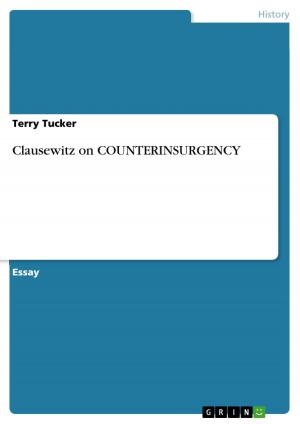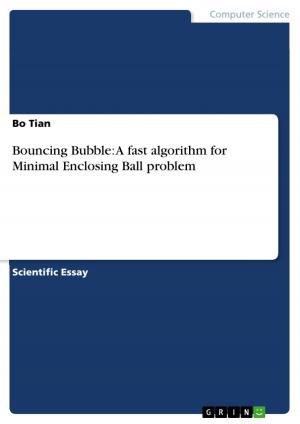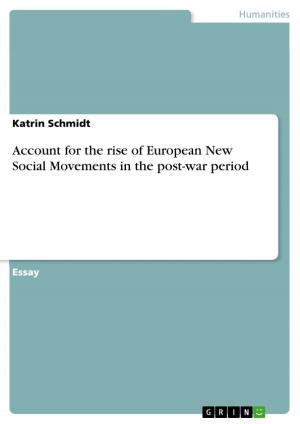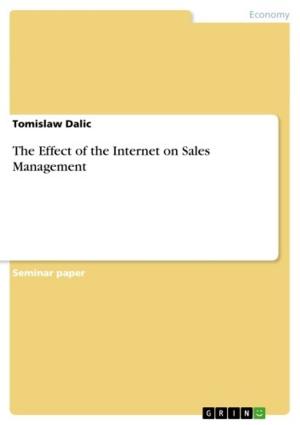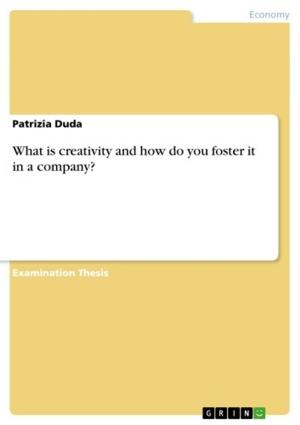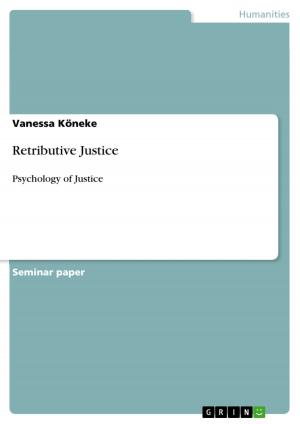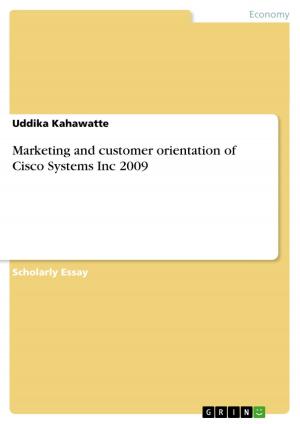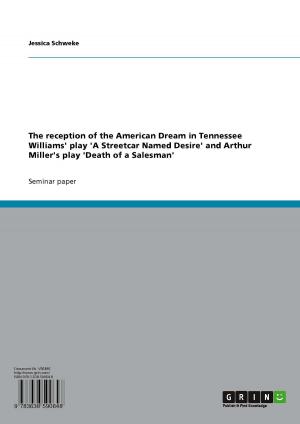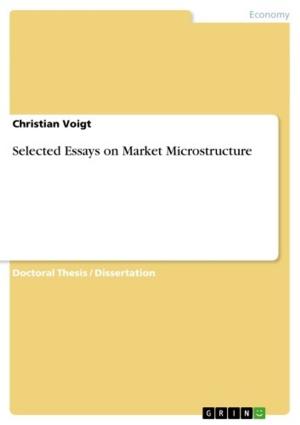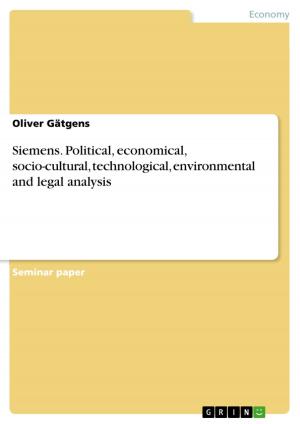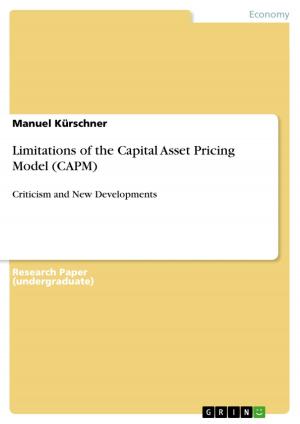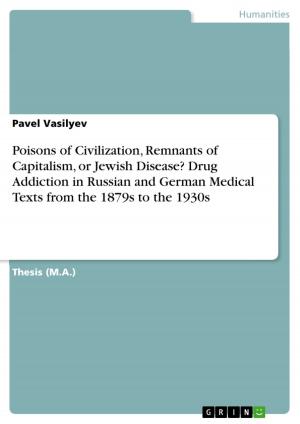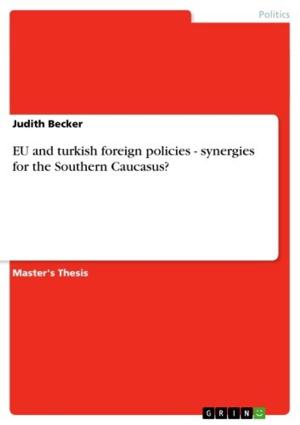| Author: | Yasir Farabi | ISBN: | 9783656231301 |
| Publisher: | GRIN Publishing | Publication: | July 6, 2012 |
| Imprint: | GRIN Publishing | Language: | English |
| Author: | Yasir Farabi |
| ISBN: | 9783656231301 |
| Publisher: | GRIN Publishing |
| Publication: | July 6, 2012 |
| Imprint: | GRIN Publishing |
| Language: | English |
Seminar paper from the year 2012 in the subject Business economics - Marketing, Corporate Communication, CRM, Market Research, Social Media, University of New England, course: Marketing Management, language: English, abstract: The purpose of this report is to analyse the current market environment of Australian airline industry in which Virgin Australia operates. Throughout the last decade, the domestic airline industry in Australia is characterised by relatively flat growth, low profit margins and financial pressure and stiff competition. High entry barrier exists in the industry with soaring competition among the existing players. Even though the threat of substitutes is low, the overall situation is further worsened by high buyer and supplier bargaining power. Qantas, Jetstar and Tiger Airways are the three major players of the industry with Virgin Australia being the second largest domestic airline. While Qantas focuses its strategy towards high-end business class and corporate customers, Jetstar and Virgin compete for the rest of the market segments. Except Tiger Airways all three companies have shown positive financial performance over their operating cycles. Virgin Australia has strong brand value and image because of its innovative ideas and creative thinking. It operates a rapidly growing fleet primarily consists of Boeings and Airbuses. The low average fleet age helps the company to reduce maintenance cost of the aircrafts. Financial performance of the company was not so promising in the year 2011 because of rising fuel price, high value of Australian dollar and environmental disaster. However, the company has been successful over the past years and future outlook is promising. However, the company has failed to attract corporate customers because of over reliance on leisure market. Moreover, because of fuel market volatility, high exchange rate of Australian dollar and environmental disaster, the company has not been financially thriving in the past years. With intensified competition in an unfavourable environment characterized by high fuel price, rising environmental concerns and high bargaining power of the suppliers, Virgin Australia will find it hard to keep their game faces on in the days to come. With the recovery of economy the company's financial performance is expected to improve in the years to come and with the opportunities that present itself within the operating environment, there is a sign of light at the end of the tunnel.
Seminar paper from the year 2012 in the subject Business economics - Marketing, Corporate Communication, CRM, Market Research, Social Media, University of New England, course: Marketing Management, language: English, abstract: The purpose of this report is to analyse the current market environment of Australian airline industry in which Virgin Australia operates. Throughout the last decade, the domestic airline industry in Australia is characterised by relatively flat growth, low profit margins and financial pressure and stiff competition. High entry barrier exists in the industry with soaring competition among the existing players. Even though the threat of substitutes is low, the overall situation is further worsened by high buyer and supplier bargaining power. Qantas, Jetstar and Tiger Airways are the three major players of the industry with Virgin Australia being the second largest domestic airline. While Qantas focuses its strategy towards high-end business class and corporate customers, Jetstar and Virgin compete for the rest of the market segments. Except Tiger Airways all three companies have shown positive financial performance over their operating cycles. Virgin Australia has strong brand value and image because of its innovative ideas and creative thinking. It operates a rapidly growing fleet primarily consists of Boeings and Airbuses. The low average fleet age helps the company to reduce maintenance cost of the aircrafts. Financial performance of the company was not so promising in the year 2011 because of rising fuel price, high value of Australian dollar and environmental disaster. However, the company has been successful over the past years and future outlook is promising. However, the company has failed to attract corporate customers because of over reliance on leisure market. Moreover, because of fuel market volatility, high exchange rate of Australian dollar and environmental disaster, the company has not been financially thriving in the past years. With intensified competition in an unfavourable environment characterized by high fuel price, rising environmental concerns and high bargaining power of the suppliers, Virgin Australia will find it hard to keep their game faces on in the days to come. With the recovery of economy the company's financial performance is expected to improve in the years to come and with the opportunities that present itself within the operating environment, there is a sign of light at the end of the tunnel.

